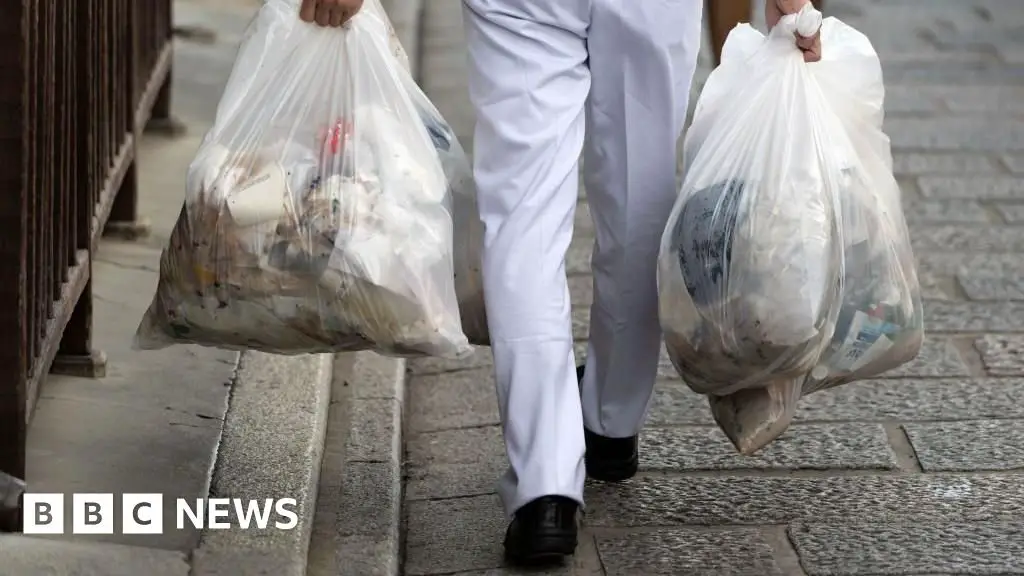For the uninitiated, sorting your trash can be a complicated process in Japan – a country that has one of the strictest garbage disposal regulations in the world.
But things are getting even tougher in the city of Fukushima.
Starting in March, the city government will search for trash bags that are not properly sorted or exceed size limits, and in some cases will publicly announce their owners.
The new regulations, approved at a community meeting on Tuesday, come amid Japan’s long effort to improve its waste management system.
While many cities in Japan open garbage bags to inspect them and some allow disclosure of companies that committed the violations, Fukushima is believed to be the first city to plan to disclose the names of both individuals and companies, according to local media .
Last year, Fukushima reported over 9,000 cases of non-compliant waste.
Currently, instead of collecting trash that doesn’t comply with disposal regulations, workers typically stick stickers on trash bags to notify residents of the violation. Residents would then have to bring their trash back into the house, re-sort it and hope they do it right the next time the collector visits.
Under Fukushima’s new rules, if garbage remains unsorted for a week, city employees can search it and try to identify the perpetrators based on items such as mail. Violators will receive a verbal warning, followed by a written warning, before their names are published on the government website as a last resort.
For privacy reasons, Fukushima authorities said inspection of the waste would be done privately.
Japanese cities each have their own garbage disposal guidelines. In Fukushima, garbage bags must be deposited at the collection points every morning by 8:30 a.m. – but must not be left out the evening before.
Different types of waste – separated into combustible, non-combustible and recyclable materials – are collected on different schedules.
For items that exceed the specified dimensions, such as: For items such as household appliances and furniture, residents must make an appointment for separate collection.
Fukushima Mayor Hiroshi Kohata said the new rules were intended to promote waste reduction and proper disposal methods.
“There is nothing illegal about publicizing malicious waste producers who do not abide by the rules and do not follow the city’s instructions and advice,” Mainichi quoted authorities as saying.
Waste is taken very seriously in Japan, where the government has made diverting from landfills, reducing waste and promoting recycling a national goal since the 1990s. The municipalities have launched their own initiatives to achieve this goal.
Residents of Kamikatsu, a Japanese city with an ambitious goal of zero waste, proudly sort their trash into 45 categories. Kagoshima Prefecture has made it mandatory for residents to write their names on their trash bags. And last year, the city of Chiba piloted an AI assistant to help residents properly dispose of their trash.





